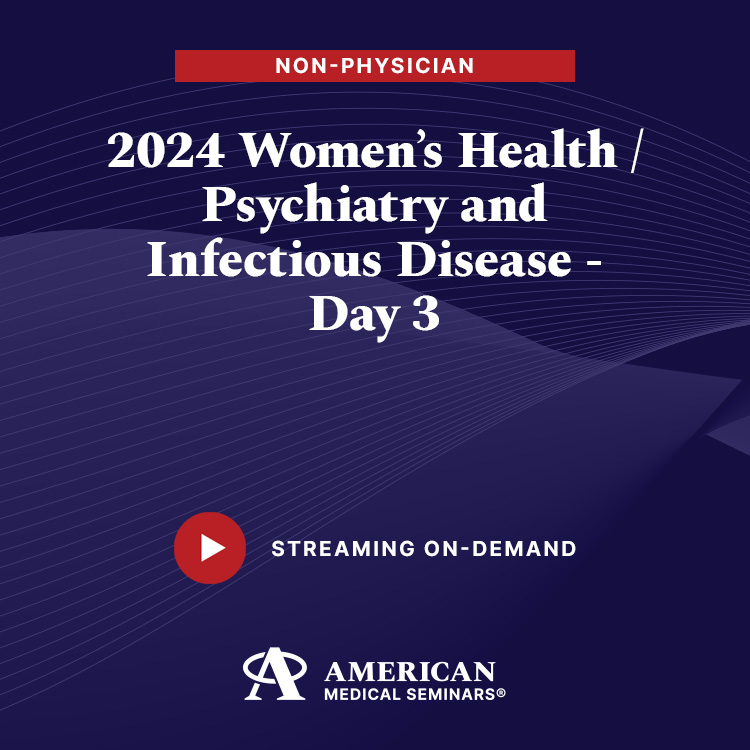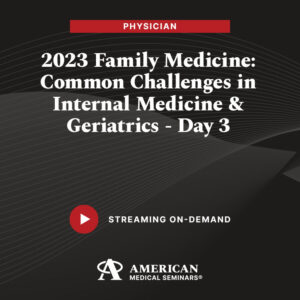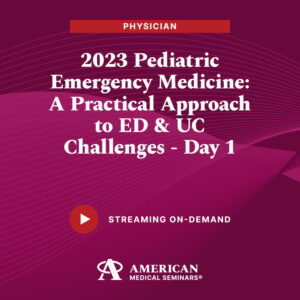Title: 2024 Women’s Health/Psychiatry and Infectious Diseases – Day 3 (Non-Physician)
Faculty: Leslie Zun, MD, MBA; John K. Crane, MD; Jerry G. Ninia, MD, RVT
Release Date: 7/1/2024 Expiration Date: 7/1/2027
Day 3
Abnormal Uterine Bleeding
Upon completion of this session, the participant should be able to:
- Identify and classify the etiology of abnormal uterine bleeding
- Define the correct terminology used in patients with abnormal uterine bleeding
- Discussed treatments in the management of patients with abnormal uterine bleeding
Office Urogynecology
Upon completion of this session, the participant should be able to:
- Appreciate the independent subspecialty of urogynecology as distinguished from general gynecology, urology, and colon-rectal surgery.
- Prepare a patient for an appointment with a urogynecologist.
- Describe various surgical (including pessaries) and medical treatments for urine incontinence, recurrent UTIs and obstetrical anal sphincter injuries.
Vaginitis Revisited
Upon completion of this session, the participant should be able to:
- Identify routine as well as challenging causes of vulvar symptoms of burning, itching or pain
- Expand upon vaginitis related to infection, estrogen deprivation and dermatological skin changes
TB and Non-TB Mycobacterial infection Update 2024
Attendees of this presentation will be able to:
- Stratify their suspicion for tuberculosis vs. Non-TB mycoacteria based on the patient’s residence in or origin from a high TB-incidence country.
- Evaluate the trends in frequency of TB vs. Non-TB mycobacteria.
- Compare and contrast the environmental reservoir of non-TB mycobacteria.
Skin & Soft Tissue Infections
Attendees of this presentation will be able to:
- Accurately distinguish between cellulitis and venous stasis dermatitis.
- Determine how the microbiology of diabetic foot ulcer differs from that of cellulitis.
- The receipt for any incentive-associated purchase will designate the value of the gift card separately from the cost of the learning activity.
- This incentive may have implications on your tax reporting obligations. Any reimbursed amount must be declared as personal income for tax purposes.



